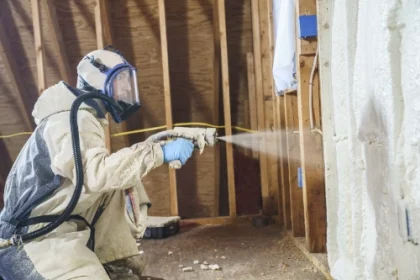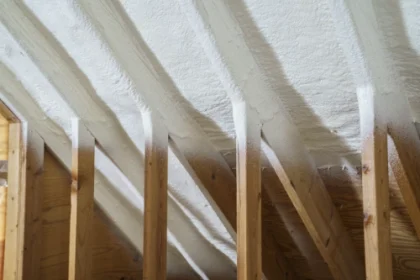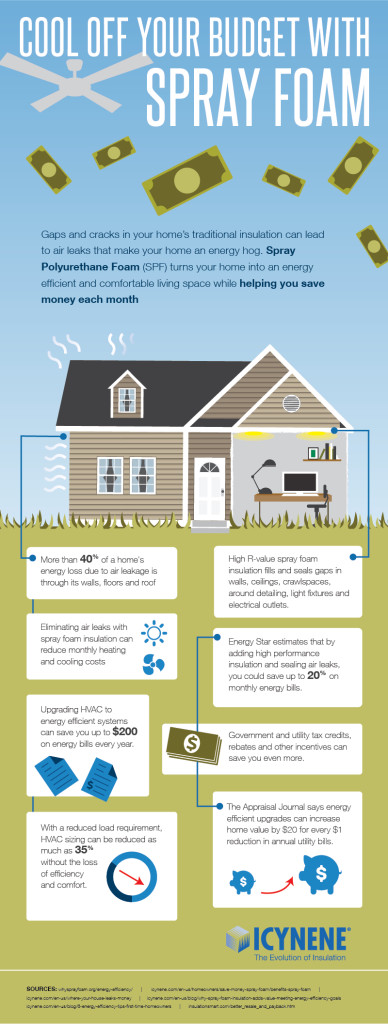

OVERVIEW
Seal-Rite Insulation is Omaha’s source for local spray foam installation. We apply spray foam in both residential and commercial structures. We consult with our customers to understand the specific project scope and make a recommendation for the right spray foam product for the job.
BENEFITS OF SPRAY FOAM
Spray foam insulation is a revolutionary product that has exceptional air sealing qualities. Spray foam can decrease your energy bills, improve sound control, and create an overall more consistently comfortable space. Benefits include:
- Protection Against Moisture
- Resistant to Pests
- No Settling Over Time
- Lowers Noise Levels
PRODUCT HIGHLIGHTS:
Natural Polymers™ Ultra-Pure® Spray Foam
Looking for a spray foam product that will not compromise indoor air quality? Ultra-Pure® spray foam is our product of choice. Brought to you by Natural Polymers, an Owens Corning company, Ultra-Pure® spray foam is designed to minimize odors and VOC emissions before, during and after application. And with FlexTemp™ formulas designed to deliver the same performance year-round, you can expect smooth, inspection-ready results on every job.
Ultra-Pure® spray foam is designed with OdorScavenger™ technology, which targets and captures specific molecules to minimize off-gassing during and after application. This high-performance spray foam insulation comes in both closed and open cell options. It has a smooth, consistent surface texture and offers advanced thermal performance. It is also GREENGUARD Gold Certified, so homeowners and contractors alike can feel confident about applying Ultra-Pure® spray foam to create an overall more energy-efficient space.
Icynene® Spray Foam
Icynene spray foam insulation is an insulation and air barrier material that seals walls, floors and ceiling cavities against air movement, including spaces around electrical outlets and light fixtures and where walls meet windows and doors. Icynene spray foam insulation can provide an effective air barrier insulation to minimize air infiltration through walls and ceilings, preventing drafts, cold spots and energy loss. With the elimination of air infiltration, spray foam also helps control moisture and reduces HVAC equipment requirements and operational costs. It comes in both open cell and closed cell types.
COMMON QUESTIONS
Is spray foam environmentally friendly?
Given its ability to create an air seal, spray foam is considered an environmentally friendly product. It helps to improve indoor air quality while reducing energy consumption and greenhouse gas emissions. The spray foam products we install are GREENGUARD Gold Certified to give our customers peace of mind.
Does spray foam entrap moisture?
Open-cell spray foam insulation products are vapor permeable to allow water vapor molecules to flow through the foam. This means any moisture in the building’s concrete or lumber can escape through the insulation as the building dries out, thus eliminating moisture that could cause rot or mold. Closed-cell spray foam insulation products are able to reject bulk water and block mass transfer of moisture that may cause mold.
Is spray foam tested for fire safety?
Yes. The spray foam products we install meet code requirements relating to fire safety, and they are tested for independent third-party verification.
How long will the foam last?
When correctly installed and not altered, spray foam will last the life of your building. Spray foam insulation adheres extremely well to virtually all substrates. Light density spray foam products remain soft and flexible to expand and contract with your home.
Can spray foam improve indoor air quality and comfort?
Yes. Spray foam seals tiny cracks and penetrations that would otherwise allow unwanted airborne irritants to invade the living space. Home occupants are protected from outdoor allergens, pollutants, and humidity. Spray foam enables a tight fit around wall openings, such as windows, electrical/cable service entry points, and light fixtures.
Is there an odor? If so, should I be concerned?
There are no blowing agents such as CFCs (chloro-fluorocarbons) or HCFCs (Hydrochlorofluorocarbons) in the Icynene light density products we install. Spray foam insulation is produced by mixing two components at a high temperature, which causes the foam to atomize during installation. This process creates an odor and requires venting. As soon as the foam “cures” (or sets), which occurs within seconds, it no longer produces the odor. It usually takes about 24 hours for the odor to completely dissipate.

